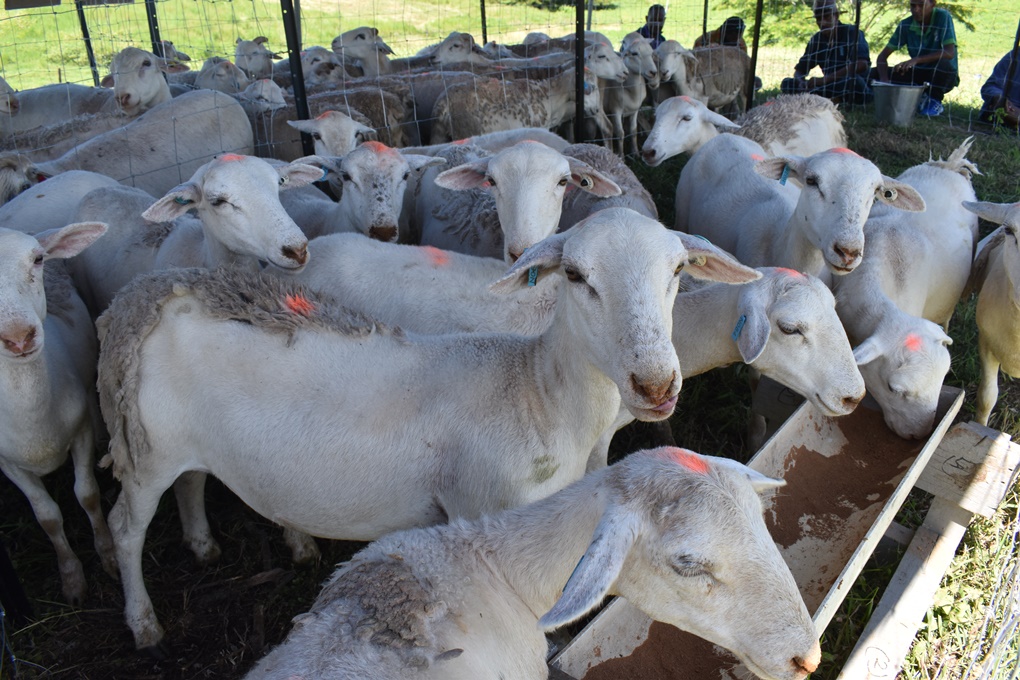FIJI’S SHEEP INDUSTRY ON TRACK FOR SUSTAINABLE GROWTH
November 6, 2025

The Ministry of Agriculture and Waterways has reaffirmed its commitment to revitalising Fiji’s sheep industry, positioning it as a key contributor to rural development, food security, and import substitution.
Delivering his ministerial statement in Parliament this morning, the Minister for Agriculture and Waterways, Honourable Tomasi Tunabuna highlighted the remarkable progress made in the industry, underscoring the value of research, innovation, and partnership in strengthening local production.
“Fiji’s sheep industry dates back to the early 1900s, when the country had approximately 8,000 sheep.
Following years of decline due to environmental challenges and management constraints, the Ministry successfully revived the sector through the establishment of the Fiji Fantastic — the nation’s first locally bred sheep,” said Hon. Tunabuna.
The Fiji Fantastic breed was developed through the Fiji Mutton Sheep Project, launched with the support of the Australian Government. The project combined several imported breeds — including Barbados Black Belly, Polled Dorsets, Corriedales, Perendales, and Wiltshire Horns — to create a tropical, easy-care breed suited to Fiji’s climatic conditions.
“The Fiji Fantastic is a testament to decades of research, dedication, and the successful blending of science, policy, and local expertise,” said Hon. Tunabuna.
“It reflects the resilience of our people and our vision for a sustainable agricultural future.”
He acknowledged the pioneering work of agricultural scientists and station managers who led the project, including Dr. Niumaia Tabunakawai, Dr. Ken Cokanasiga, Mr. Peter Manueli, and Mr. Maikali Drauna.
The sheep industry has experienced strong growth in recent years. The number of registered private sheep farms has increased from 503 in 2014 to 1,280 in 2025, representing a 61% growth, while the national flock has more than doubled from 18,603 to 41,895 in the same period.
This growth, Hon. Tunabuna said, reflects the success of improved breeding, better management practices, and strong farmer confidence in the sector.
“Government research stations at Nawaicoba, Seaqaqa, Batiri, and Mua currently manage over 1,900 animals and play a central role in genetic improvement, applied research, and farmer trainings.”
In 2023, Fiji produced 149 tonnes of local sheep meat, compared to 8,067 tonnes (valued at FJ$72.3 million) imported during the same year.
To help narrow this gap, the Government has allocated FJ$635,000 under the Sheep Research and Extension Initiative. The program focuses on breed and nutrition improvement, and reducing losses from diseases and dog attacks.
Since 2023, a total of 547 farmers have received support packages valued at FJ$1.7 million to enhance infrastructure, feed, and husbandry practices. These initiatives are designed to boost production, improve quality, and maintain a consistent supply of local sheep meat to markets.
“Our goal is to increase local production, improve quality, and ensure consistency in supply,” added Hon. Tunabuna.
“With the right support, Fiji can further reduce reliance on imported meat and create more opportunities for our rural farmers.”
The Minister also highlighted Fiji’s export potential and ongoing collaborations with regional and international partners.
“Fiji has previously exported Fiji Fantastic sheep to Samoa and Tonga, and plans are underway to strengthen partnerships with Barbados — the home of the Barbados Black Belly breed, one of the foundation breeds of the Fiji Fantastic. Our recent visit to Barbados opened new opportunities for cooperation in research and breeding,” he stated.
“We are committed to working closely with our partners to enhance technology transfer and expand regional trade.”
“This Government remains committed to expanding the sheep industry, advancing agricultural self-sufficiency, and building a resilient and prosperous rural economy,” concluded Hon. Tunabuna.
The Ministry of Agriculture and Waterways remains steadfast in its mission to strengthen the livestock sector and drive sustainable economic growth through innovation, partnerships, and farmer empowerment.
ENDS
